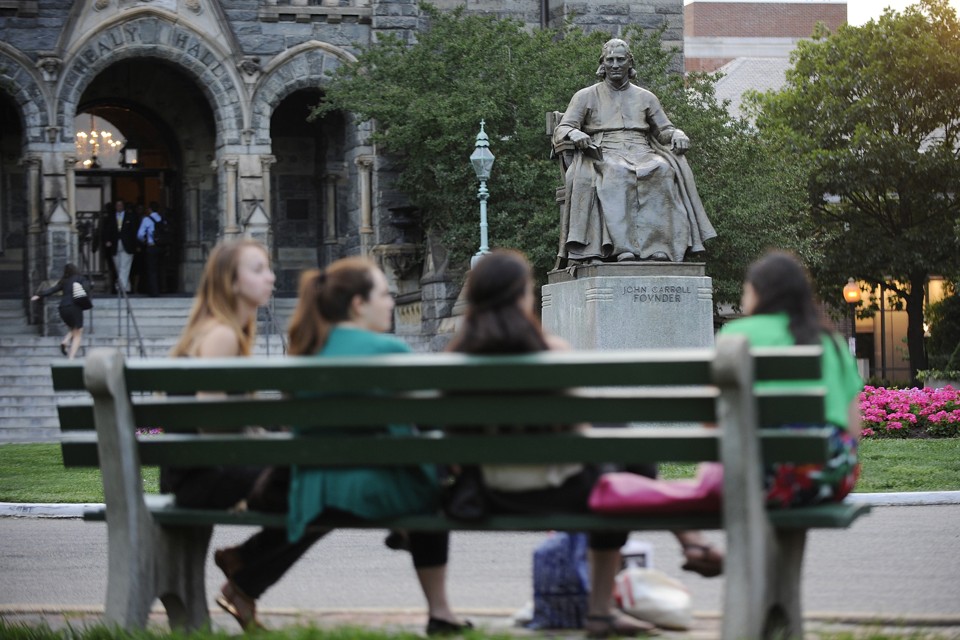The Cost of Being First
Conflating “first-generation” and “low-income” students is inaccurate and isolating.

Students at Georgetown University created the Alliance for Low-Income First-Generation Narrative.Jonathan Ernst / Reuters
When Chris was accepted into the Georgetown’s School of Foreign Service, he didn’t think of himself as a first-generation college student. Acknowledging his first-generation identity and how it influenced his path came years later, but the label assigned by his college is only a part of Chris’s individual story.
His parents, both Vietnamese refugees who had not gone to college, raised him in south Florida. Chris, who did not want to use his last name, knew he’d earned a golden admission ticket, but he didn’t know that getting in was only half the struggle. He hadn’t considered how his parents’ lack of higher education might influence his own college studies. “I did homework with my classmates for the first time and I found myself getting defensive about what little knowledge of college I had coming in,” Chris said, describing the anxiety and distress he experienced studying, taking tests, and meeting classmates. “I was playing pretend the moment I had my first meaningful conversation with someone, and I consequently felt lost the next year and a half.”
More schools are focusing on supporting students like Chris. But in their goal to increase access to higher education, schools label young people in ways thatisolate rather than include them—particularly where colleges and the support systems they develop for these students automatically equate being first generation with being low income, as many studies suggest.
As a sociologist, Celine-Marie Pascale, a professor and the associate dean for undergraduate studies at American University, where I also teach, is concerned with the language and attitudes that develop around culture, knowledge, and power. When Pascale was a first-generation graduate student, 17 years after earning her undergraduate degree, she was awarded a scholarship and asked to visit donors. “I was incredibly grateful, of course; I could not have gone to school without it. But I became weary of going to events and representing the poor student they were saving. It felt demeaning,” she said.
The labels aren’t always intentional, and they aren’t always bad. Colleges anticipate and define student categories—like low-income, first-generation, and minority—mostly based on voluntary Common Application data provided before a student ever arrives on campus. While students aren’t required to disclose their parents’ educational backgrounds—and many don’t—self-identified first-generation students are often linked to or assumed to have economic disadvantage. Students may also choose not to disclose their first-generation status; professors and classmates won’t know unless they claim the label. But Assuming First-Generation Students Are Low-Income is False - The Atlantic:
